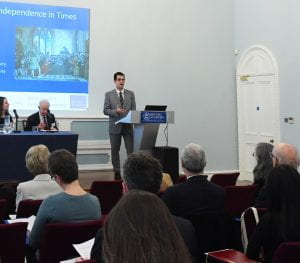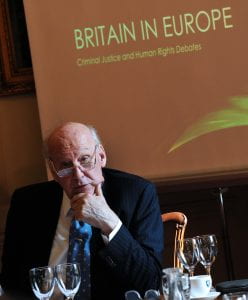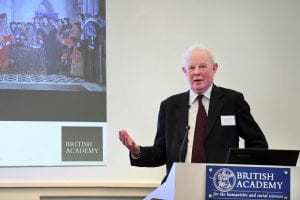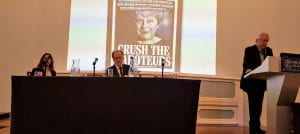
Goldsmiths’ Britain in Europe (BiE) thinktank experts will be in conversation with one of Britain’s foremost economic and political commentators, Will Hutton, on the “state we’re in”, with Brexit, and how to avoid jumping off the cliff.
(January 29, 18.30-20.00)
Theresa May’s “EU withdrawal agreement” has been emphatically rejected by Parliament, and Britain is heading for the cliff edge.
Why has a deal that has taken more than two years to agree, and was providing practical solutions to a vast range of post Brexit complications – from the protection of EU citizens’ rights, settlement of UK’s financial obligations towards the EU, offering a transition period and a temporary solution on the Northern Ireland border, to drawing the framework for the future relationship, including a free trade area for goods, an economic partnership extending to services, investment, transport, energy and fishing, and continued security cooperation – failed so blatantly to gain support, from either end of the Brexit political spectrum?
“Remainers” may have justifiably seen in the EU Withdrawal Agreement an imperfect solution that provided far less protection, far less scope for collaboration, than current EU membership does. They may therefore have been strengthened in their conviction that nothing short of (finally) staying in the EU is going to be a convincing alternative to the status quo. But why did Brexiteers “despise” Theresa May’s deal, and what is the alternative they had to offer? Not “no deal”, surely. Between 550 to 570 MPs strictly oppose “no deal”, estimates Dominic Grieve QC MP.
Would extending Article 50 make sense at this stage, or should we now find the courage to come to terms with the near universal truth that the “Brexit process” has failed and revoke Article 50 altogether; the European Court of Justice has said the UK can do so unilaterally. But the clock is ticking.
Considering the many pitfalls of the above, can a second referendum now emerge as the only viable way forward? And if those who believe in Brexit have the “will of the people” at heart, why would they oppose such an option? Shouldn’t the people ultimately decide how we leave the EU (if they still believe we should do so)? Or is the risk of further social division so heightened that we should avoid a second referendum at all costs? And wouldn’t leaving on catastrophic “no deal” terms create further social division (and worsen the economic divide) itself?
Goldsmiths’ “Britain in Europe” experts will be entering in conversation about the above with Will Hutton, one of the most prolific British commentators on the political and economic life of the country, and Brexit of course.
 Will Hutton is the Principal of Hertford College, Oxford. He is a political economist, author and columnist with a career that spans investment banking, BBC radio and TV, newspapers, consultancy, leading think tanks and heading up government commissions.
Will Hutton is the Principal of Hertford College, Oxford. He is a political economist, author and columnist with a career that spans investment banking, BBC radio and TV, newspapers, consultancy, leading think tanks and heading up government commissions.
After six years in the City, he launched his career in journalism as economics editor for the BBC’s Newsnight and later for The Guardian. He went on to become editor of The Observer in 1996, for which he still writes a regular column. From 2000 until 2008 he was CEO of The Work Foundation, stepping down to work as its part time non-executive vice chair. He co-founded the Big Innovation Centre in 2011, which has become one of Britain’s leading innovation think-tanks, soon before joining Hertford College. He has made numerous TV documentaries for the BBC and Channel 4.
Will’s best-known book is probably ‘The State We’re In’ (1995), which was seen at the time as defining a new British economic and social model (that was only very partially developed by the Blair governments), and was one of the top-selling books on political economy since 1945. Since then he has published the best-selling ‘The State to Come’, ‘The Writing on the Wall: China and the West in the 21st Century’, ‘Them and Us’ and ‘How Good We Can Be’, published in February 2015.
His latest book, written in conjunction with Lord Andrew Adonis, ‘Saving Britain: How We Can Prosper in a New European Future’ was released in June 2018.
Will headed up a government Review of the Creative Industries in 2007, and on Fair Pay in the Public Sector in 2010/11. He chaired the Independent Review on University fees between 2011 and 2014, and is currently co-leading the BBC’s review on pay transparency.
Britain in Europe is an independent, multi-disciplinary, thinktank, based at Goldsmiths University of London (Law). Britain in Europe members produce original research and influence public policy, offering a platform for evidence-based evaluations of Britain’s interactions with the EU and its institutions.
(Published 19 January 2019)
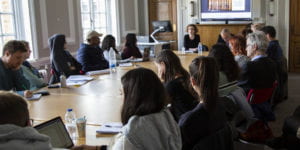

 Will Hutton is the Principal of Hertford College, Oxford. He is a political economist, author and columnist with a career that spans investment banking, BBC radio and TV, newspapers, consultancy, leading think tanks and heading up government commissions.
Will Hutton is the Principal of Hertford College, Oxford. He is a political economist, author and columnist with a career that spans investment banking, BBC radio and TV, newspapers, consultancy, leading think tanks and heading up government commissions.
 The
The  Dr Michaela Benson is a Reader in Sociology and the research lead for a
Dr Michaela Benson is a Reader in Sociology and the research lead for a  Dr Will Davies is a Reader in Political Economy, and works on history of economics, neoliberalism and the present crisis of expertise. His first book
Dr Will Davies is a Reader in Political Economy, and works on history of economics, neoliberalism and the present crisis of expertise. His first book 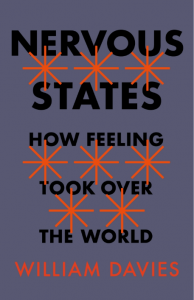 rld
rld
 America’s return to a primitive post-Westphalian pre-20th Century concept of untouchable, isolated sovereignty is extraordinarily dangerous. What is sovereignty for the US will have to be respected by the US in other countries and then by all states for all other states. It is a concept of sovereignty towards which the more extreme right wing governments in Europe – and extreme supporters of Brexit in the UK -are edging, mindless of how Hitler’s rise, and the holocaust to come, were in part possible because no other state would challenge Germany’s internal criminality however gross until too late.
America’s return to a primitive post-Westphalian pre-20th Century concept of untouchable, isolated sovereignty is extraordinarily dangerous. What is sovereignty for the US will have to be respected by the US in other countries and then by all states for all other states. It is a concept of sovereignty towards which the more extreme right wing governments in Europe – and extreme supporters of Brexit in the UK -are edging, mindless of how Hitler’s rise, and the holocaust to come, were in part possible because no other state would challenge Germany’s internal criminality however gross until too late.
